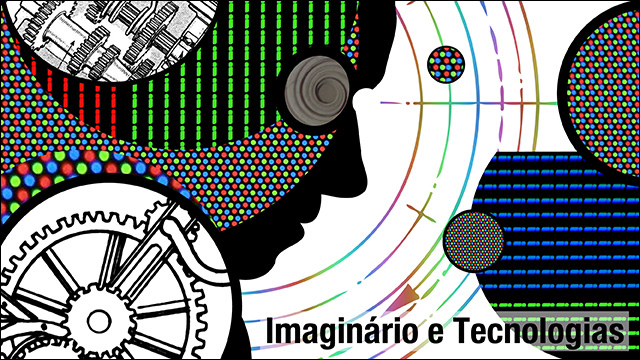The role played by interests in the configuration of an ethics of the journalistic agent
DOI:
https://doi.org/10.15448/1980-3729.2011.3.9860Keywords:
Ethics, journalism, communicationAbstract
This paper outlines the possibility and conditions of the journalist’s ethics from the point of view of Bourdieu’s professional analysis and Habermas’ discourse ethics, focusing on the notion of ‘interest’. Although the two thinkers have little in common, both seems to focus on the notion of interest to lead an ethical discussion. In this paper, the goal is to discuss these theoretical notions in order to examine what seems to be an everyday paradox between the journalist’s responsibilities and the role played by interest in the journalistic practices and in a communicative ethics.Downloads
References
AUDI, Robert. Moral value and human diversity. Oxford: OUP, 2007.
BARROS FILHO, Clóvis de. Ética na Comunicação. São Paulo: Moderna, 1995.
BARROS FILHO, Clóvis de; MARTINO, Luis Mauro Sá. O habitus na comunicação. São Paulo: Paulus, 2003.
BOHMAN, James. O que é a deliberação pública? Uma abordagem dialógica. In: MARQUES, Ângela (Org.). A deliberação pública e suas dimensões sociais, políticas e comunicativas: textos fundamentais. Belo Horizonte: Autêntica, 2009, p. 31-84.
BOURDIEU, Pierre. Le senses pratique. Paris: Minuit, 1980.
______. Ce que parler veut dire. Paris: Fayard, 1993.
______. Raisons Pratiques. Paris: Seuil, 1997.
______. Langage et pouvoir symbolique. Paris: Seuil, 1996.
CHAMBERS, Simone. Reasonable Democracy – Jürgen Habermas and the Politics of Discourse. London: Cornell
University Press, 1996.
CHAPPELL, Timothy. Ethics and Experience. Londres: Acumen, 2009.
CHRISTOFOLETTI, Rogério. Ética no jornalismo. São Paulo: Contexto, 2008.
COHEN, Jean; ARATO, Andrew. Discourse Ethics and Civil Society. In: COHEN, Jean; ARATO, Andrew (Orgs.). Civil society and political theory. Cambridge: MIT Press, 1992, p. 345-420.
ESTEVES, João Pissarra. Espaço Público e Democracia: comunicação, processos de sentido e identidades sociais. Rio Grande do Sul: Unisinos, 2003.
______. A ética da comunicação e os media modernos: legitimidade e poder nas sociedades complexas. Lisboa: Fundação Calouste Gulbenian, 1998.
FRASER, Nancy. Rethinking the Public Sphere: a contribution to the critique of actually existing democracy. Social Text, n. 25/26, p. 56-80, 1990.
GASTIL, John. Political Communication and Deliberation. London: Sage, 2008.
GOMES, Wilson; MAIA, Rousiley. Comunicação e democracia: problemas e perspectivas. São Paulo: Paulus, 2008.
GOMES, Mayra Rodrigues. Ética e jornalismo. São Paulo: Escrituras, 2002.
HABERMAS, Jürgen. A inclusão do outro. São Paulo: Edições Loyola, 2004.
______. A ética da discussão e a questão da verdade. São Paulo: Martins Fontes, 2007.
______. The theory of communicative action. Boston: Beacon Press, v.2, 1987.
______. A Reply to my Critics. In: THOMPSON, J. B., HELD, D. (Eds.). Habermas: critical debates. Cambridge: MIT Press, 1982, p. 219-283.
KARAM, Francisco José. Jornalismo, Ética e Qualidade. São Paulo: Summus, 1997.
LUKES, Steven. Moral relativism. Londres: Profile, 2008.
MANSBRIDGE, Jane. Conflict and Self-Interest in Deliberation. Paper presented at Granada IVR workshop on deliberative democracy and its discontents, on 25 and 27 May, 2005.
MANSBRIDGE, Jane e outros. The place of self-interest and the role of power in deliberative democracy. The Journal of Political Philosophy, v. 18, n. 1, p. 64-100, 2010.
MARQUES, Ângela. O papel dos interesses na construção de uma ética dos processos comunicativos. Lumina (UFJF. Online), v. 5, p. 1-18, 2011.
______. Ética do discurso e deliberação mediada sobre a questão das cotas raciais. Líbero, v. 13, p. 75-89, 2010.
______. As relações entre ética, moral e comunicação em três âmbitos da experiência intersubjetiva. Logos, v. 31, p. 51-63, 2009.
MARTINO, Luis Mauro Sá. Mídia e Poder Simbólico. São Paulo: Paulus, 2003.
______. A ética como estratégia no campo jornalístico. Líbero, v. 13, p. 75-89, 2010.
NUTTALL, Jon. Moral questions. Londres: Oxford, 1993.
PAGE, Benjamin. Who deliberates ? Mass Media in Modern Democracy. Chicago : The University of Chicago Press, 1996.
THOMPSON, Mel. Ethics. Londres: Hodder, 2006.
YOUNG, Iris. Justice and the politics of difference. Princeton: Princeton University Press, 1990.
Downloads
Published
How to Cite
Issue
Section
License
Copyright
The submission of originals to Revista Famecos implies the transfer by the authors of the right for publication. Authors retain copyright and grant the journal right of first publication. If the authors wish to include the same data into another publication, they must cite Revista Famecos as the site of original publication.
Creative Commons License
Except where otherwise specified, material published in this journal is licensed under a Creative Commons Attribution 4.0 International license, which allows unrestricted use, distribution and reproduction in any medium, provided the original publication is correctly cited.






